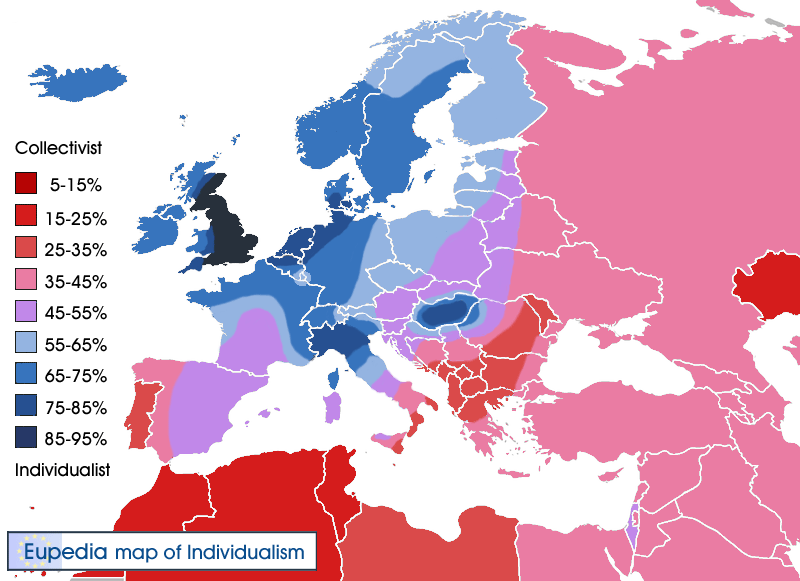ElHorsto
Banned
- Messages
- 1,034
- Reaction score
- 185
- Points
- 0
- Ethnic group
- German
- Y-DNA haplogroup
- Yes
- mtDNA haplogroup
- Yes
Actually I see little correlation. Scandinavia and Ireland is more on the individualistic side, but has a low population density. Places in southern Italy like Campania, Apulia or Sicily are very collectivist, but as densely populated as England, and much more than Scotland or Ireland.
True, and Hungary also does not match so well. The correlation is not perfect of course and it would be foolish to claim population density to be the only cause of "individualism". But I'm still sure it is one important reason, because the strong social monitoring in villages where everybody knows everybody limits "individualist" life-style causing "individualists" to escape to big towns where they are allowed to be more individualistic. Reversely, conservative ( or "collectivist") people tend to stay home in the environment they are accustomed to, avoiding risk, change etc. And third, densely populated regions provide more opportunities for individualism (entrepreneural opportunities, cultural diversity, moral diversity), whereas rural areas are too simple (homogeneous) to provide space for every individuality. I think big towns naturally attract individualists (whatever that term means exactly).
In France we could say that northerners are more individualistic than southerners, although this is not reflected in the population density.
It fits quite well for France in my eyes. The high density in the south is concentrated to the east where it is also more blue in your map, so it fits. The remaining southwest has then the lowest density from whole France and it is at the same time the most red in your map, so it fits. When excluding the south-east, the north of France is higher populated and also more blue, fits.
In Belgium the Dutch-speaking north is more densely packed than the French-speaking south, but that doesn't make them more individualistic. Actually I'd say that Walloons are often more individualistic than Flemings.
If true then this differs from the map. If the map is correct then the Belgium maps also match well in my eyes.


